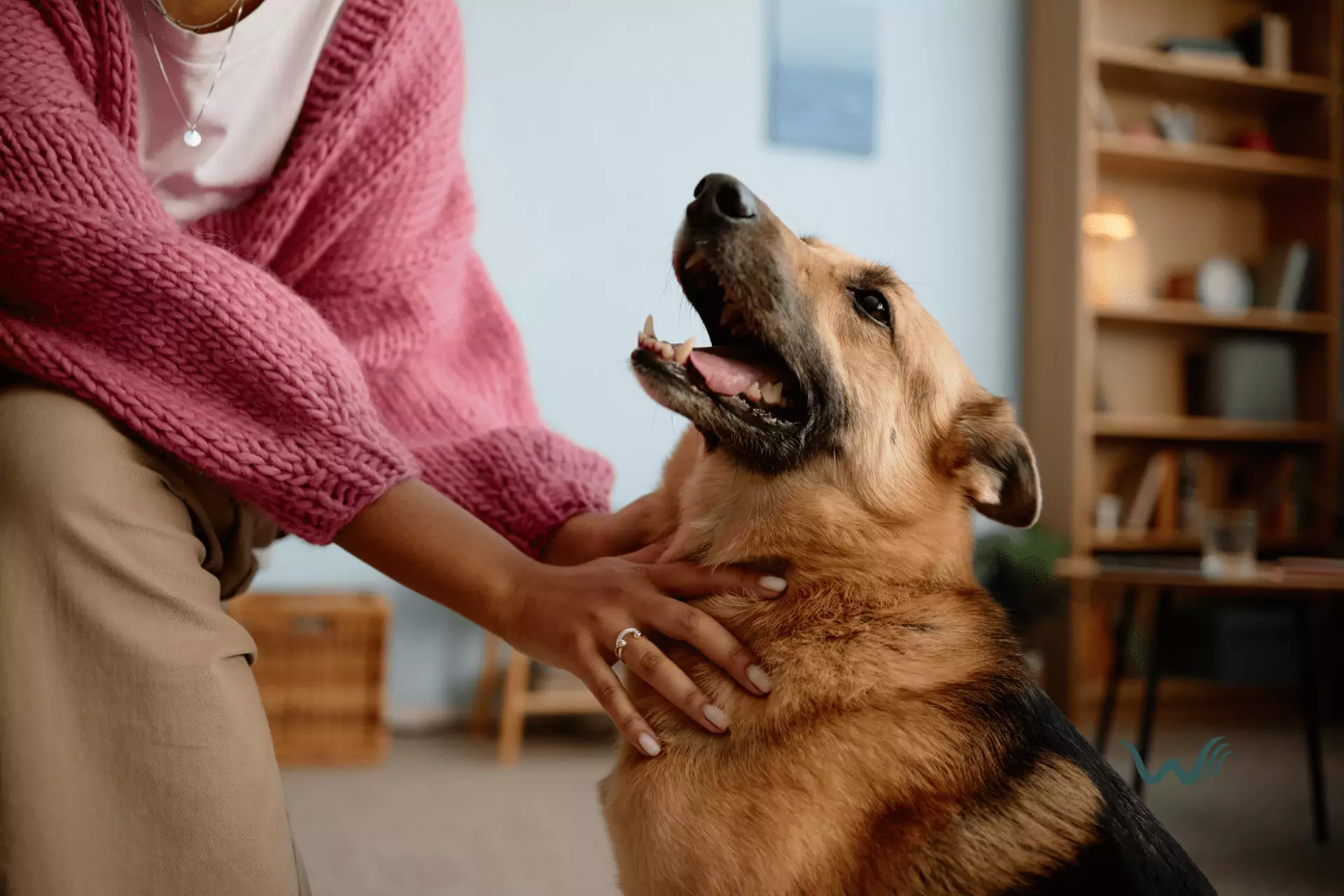

Best Emotional Support Animal Breeds: Choosing The Right ESA
by Haley Mills
Last updated: February 25, 2025
Verified and Approved by:
Angela Morris,
MSW, LCSW
Fact Checked

ESAs are animals that offer emotional support and companionship to individuals with mental or emotional disabilities. They can provide a sense of stability and comfort, helping to alleviate symptoms of anxiety, depression, and stress.
In this article, we will explore the best emotional support animal breeds and guide you in choosing the right ESA for you.
Choosing the right emotional support animal breed ensures a harmonious and fulfilling relationship. Factors such as size, temperament, and energy level should be considered to ensure that your ESA is a perfect match for your lifestyle and needs.
Whether you prefer a small and cuddly companion or a larger, more active one, there is a breed out there that will suit your preferences and requirements. Understanding the characteristics and traits of different ESA breeds will help you make an informed decision and find the perfect match for your emotional support needs.
So, let’s dive in and explore the world of emotional support animals together!
Benefits of Emotional Support Animals
Did you know that owning an emotional support animal can reduce symptoms of anxiety and depression by up to 74%? It’s true!
These incredible animals have the power to provide comfort, companionship, and unconditional love to those in need. Whether you’re struggling with stress, loneliness, or any other emotional challenges, an emotional support animal can be your loyal and trusted companion.
Imagine coming home after a long, exhausting day and being greeted by your furry friend wagging their tail and showering you with kisses. The simple act of petting them can instantly melt away your worries and bring a sense of calm and peace to your mind. They provide a listening ear, a warm snuggle, and a non-judgmental presence that can make even the toughest days a little bit brighter.
Not only do emotional support animals offer emotional support, but they also encourage physical activity and social interaction. Taking your ESA for a walk or playing with them in the park can help you stay active and relieve stress. These activities also provide opportunities to meet new people and form connections, which can help combat feelings of isolation and loneliness.
Factors to Consider When Choosing an ESA Breed
When considering an emotional support animal, there are several factors to take into account when selecting the perfect breed.
First and foremost, you’ll want to think about the size of the animal. If you live in a small apartment or have limited space, a smaller breed such as a Chihuahua or a Shih Tzu might be the best fit for you. On the other hand, if you have a larger home or access to a yard, you may be able to accommodate a larger breed like a Labrador Retriever or a Golden Retriever.
Another factor to consider is the energy level of the breed. If you lead an active lifestyle and enjoy outdoor activities, a high-energy breed like a Border Collie or a Vizsla might be a great choice. These breeds thrive on exercise and can provide you with the companionship and motivation to stay active. However, if you prefer a more laid-back lifestyle, a lower energy breed like a Basset Hound or a Cavalier King Charles Spaniel may be a better fit for you.
Ultimately, the most critical factor to consider when choosing an emotional support animal breed is the specific needs and preferences of the individual seeking emotional support. It’s crucial to select a breed that not only provides comfort and companionship, but also aligns with your lifestyle and living situation.
Popular ESA Breeds and Their Characteristics
One interesting statistic to emphasize the popularity of certain breeds is that Labrador Retrievers are one of the most commonly chosen emotional support animals. Labrador Retrievers are known for their friendly and gentle nature, making them excellent companions for those in need of emotional support.
Here are some other popular ESA breeds and their characteristics:
- Golden Retrievers: These dogs are known for their intelligence and loyalty. They’re often used as therapy dogs and are great at providing emotional support.
- Cavalier King Charles Spaniels: These small and affectionate dogs are perfect for people who want a cuddly companion. They’re known for their gentle nature and love to be around their owners.
- Poodles: Poodles are highly intelligent and trainable, making them great emotional support animals. They come in different sizes, so you can choose the one that suits your lifestyle best.
- Beagles: Beagles are known for their friendly and outgoing personalities. They’re great at lifting your spirits and providing emotional comfort.
- Yorkshire Terriers: These small dogs are known for their loyalty and devotion to their owners. They’re often chosen as emotional support animals for their loving and affectionate nature.
Training and Certification for ESAs
Training and certification are essential for ESAs to ensure they provide the necessary emotional support. As someone who has a subconscious desire for serving others, you understand the importance of having a well-trained and certified emotional support animal by your side.
Training is crucial because it helps your ESA learn how to behave appropriately in various situations. Whether you’re at home, in public, or traveling, having an ESA that is well-behaved and obedient is essential for both your comfort and the comfort of those around you.
Certification is also important because it provides legitimacy and credibility to your ESA. By obtaining the necessary certifications, you are ensuring that your animal is recognized as a legitimate emotional support animal. This can be particularly helpful when it comes to accessing certain rights and accommodations, such as housing or air travel. Having a certified ESA can make the process smoother and ensure that you and your animal are protected under the law.
So, as you consider getting an emotional support animal, remember the importance of training and certification. By investing time and effort into properly training your ESA and obtaining the necessary certifications, you can ensure that your animal is able to provide the emotional support you need, while also being a well-behaved and respected member of society.
Responsibilities and Care for an Emotional Support Animal
Caring for and tending to an emotional support companion involves fulfilling their needs and providing them with a nurturing environment. As an individual who desires to serve others, taking on the responsibility of an emotional support animal requires dedication and commitment. These animals rely on you for their well-being and emotional stability, so it’s important to prioritize their care.
First and foremost, it’s essential to provide your emotional support animal with a safe and comfortable living space. This includes ensuring they have a cozy bed or crate, plenty of fresh water, and access to a suitable bathroom area.
Additionally, creating a stimulating environment with toys and activities can help keep them mentally and physically engaged. Regular exercise is also crucial for their overall health and well-being, so be sure to incorporate daily walks or playtime into their routine.
In addition to their physical needs, emotional support animals require a great deal of attention and affection. They thrive on human interaction and rely on you for emotional support. Spending quality time with your companion, whether it’s through cuddling, grooming, or simply being present, can go a long way in strengthening your bond.
Taking care of an emotional support animal is a rewarding experience, but it also comes with responsibilities. By providing a nurturing environment and meeting their needs, you’re not only supporting your companion but also fulfilling your own desire to serve others.
Frequently Asked Questions
Can any breed of animal be considered as an emotional support animal?
Yes, any breed of animal can be considered as an emotional support animal. The most important factor is their ability to provide comfort and companionship to their owners in times of emotional distress.
Is there a specific age at which an emotional support animal should be obtained?
There isn’t a specific age for getting an emotional support animal, but it’s important to consider their training and temperament. Puppies can be trained, but older animals may already have the desired traits.
Are emotional support animals allowed in all types of housing?
Absolutely! Emotional support animals are protected by federal law and are allowed in all types of housing, including apartments and rental properties. Landlords cannot discriminate against individuals with ESAs. So go ahead and find your perfect companion!
Can I have more than one emotional support animal?
Yes, you can have more than one emotional support animal! Having multiple ESAs can provide even more love and support. Just make sure you meet the necessary requirements and follow any guidelines set by your housing provider.
What is the difference between an emotional support animal and a service animal?
An emotional support animal offers comfort and companionship to help with mental health conditions, while a service animal is specifically trained to perform tasks for people with disabilities.
Certify Your Emotional Support Animal Today

Why You Can Rely on Us?
At Wellness Wag, we believe your pet deserves care rooted in both science and compassion. Each article is carefully researched, written in clear language for pet owners, and then reviewed by qualified professionals to ensure the information is evidence-based, current, and practical for real-life care. Our goal is to help you feel confident in making informed decisions about your pet’s health and well-being.
Reviewed by
Angela Morris, MSW, LCSW
Angela is a licensed clinical social worker with 20 years of experience in patient advocacy and community mental health. She has assisted numerous clients with ESA evaluations and brings a deep understanding of disability accommodations, ensuring that all information is accurate, supportive, and practical.

Written by :
Haley Mills
Last Updated :
February 25, 2025











